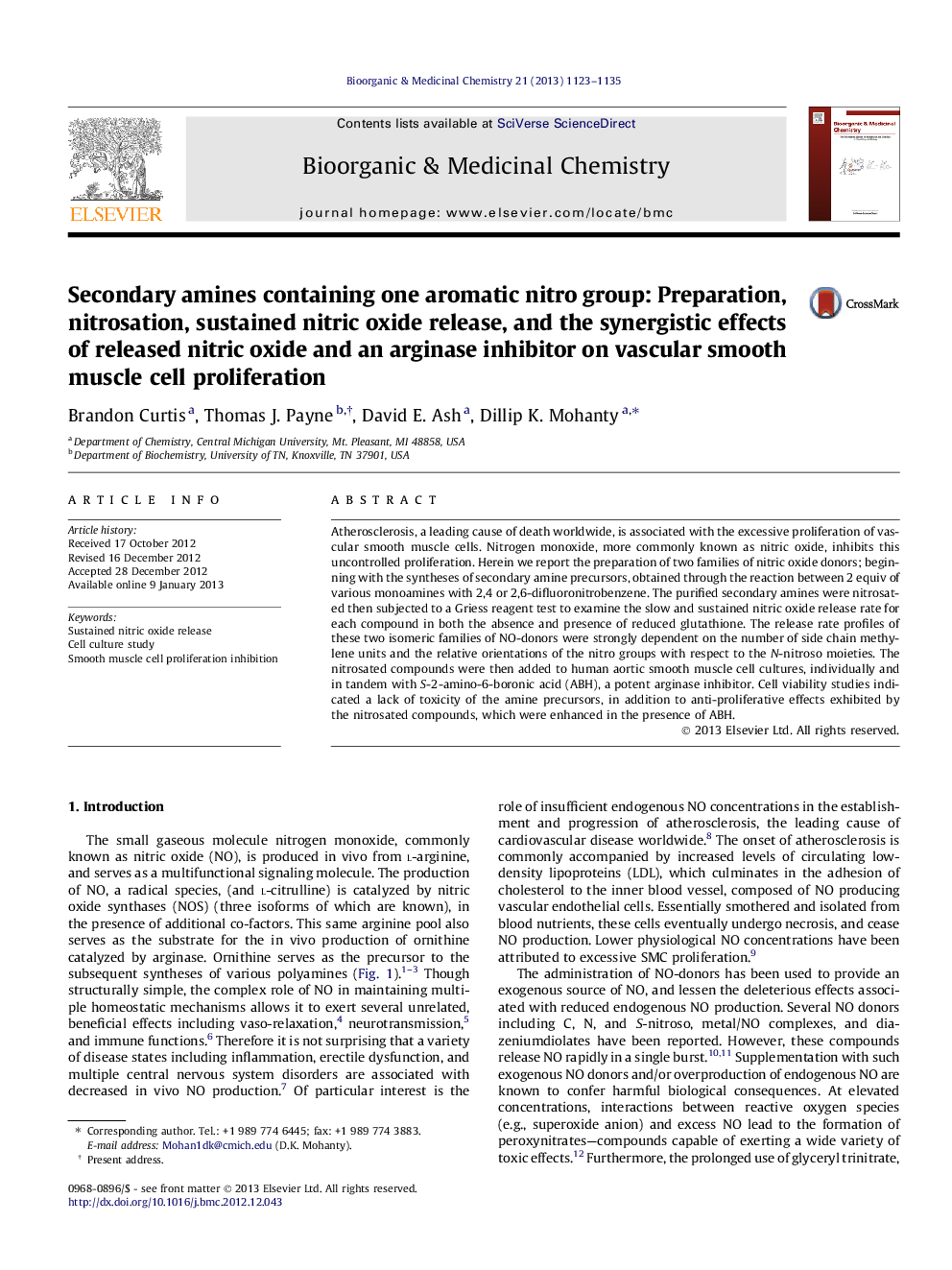| کد مقاله | کد نشریه | سال انتشار | مقاله انگلیسی | نسخه تمام متن |
|---|---|---|---|---|
| 1358395 | 981340 | 2013 | 13 صفحه PDF | دانلود رایگان |

Atherosclerosis, a leading cause of death worldwide, is associated with the excessive proliferation of vascular smooth muscle cells. Nitrogen monoxide, more commonly known as nitric oxide, inhibits this uncontrolled proliferation. Herein we report the preparation of two families of nitric oxide donors; beginning with the syntheses of secondary amine precursors, obtained through the reaction between 2 equiv of various monoamines with 2,4 or 2,6-difluoronitrobenzene. The purified secondary amines were nitrosated then subjected to a Griess reagent test to examine the slow and sustained nitric oxide release rate for each compound in both the absence and presence of reduced glutathione. The release rate profiles of these two isomeric families of NO-donors were strongly dependent on the number of side chain methylene units and the relative orientations of the nitro groups with respect to the N-nitroso moieties. The nitrosated compounds were then added to human aortic smooth muscle cell cultures, individually and in tandem with S-2-amino-6-boronic acid (ABH), a potent arginase inhibitor. Cell viability studies indicated a lack of toxicity of the amine precursors, in addition to anti-proliferative effects exhibited by the nitrosated compounds, which were enhanced in the presence of ABH.
Secondary amines prepared from the reactions of linear aliphatic amines and 2,4-difluoronitrobenzene or 2,6-difluronitrobenzene at low temperatures were nitrosated. These nitric oxide donors release nitric oxide in a slow, sustained and rate-tunable manner. The released nitric oxide inhibited proliferations of aortic smooth muscle cells. The secondary amines were not cytotoxic towards human aortic smooth muscle cells. Addition of ABH, an arginase inhibitor, along with the prepared NO-donors, exhibited synergistic effects in inhibiting cell proliferations.Figure optionsDownload as PowerPoint slide
Journal: Bioorganic & Medicinal Chemistry - Volume 21, Issue 5, 1 March 2013, Pages 1123–1135